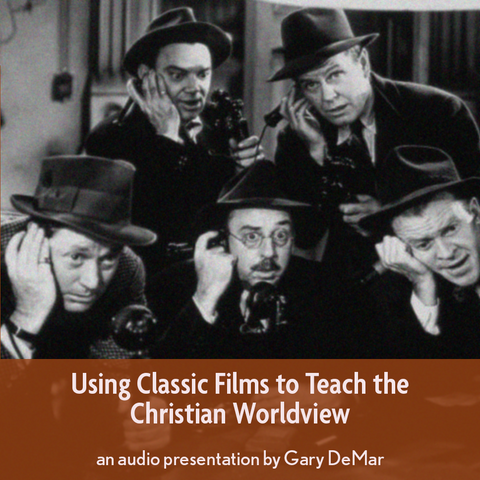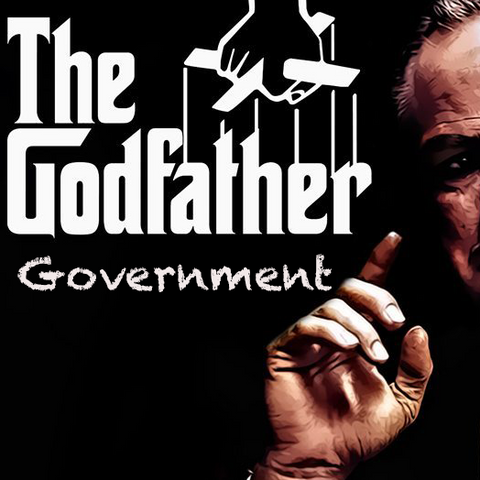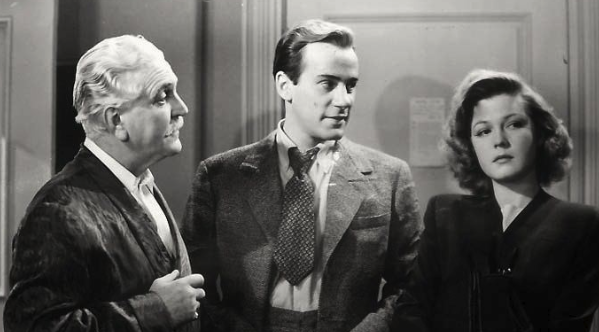Most of us have heard of Mr. Smith Goes to Washington (1939), a film about a naïve Senator who ends up taking on the political establishment. It’s a reminder that there’s nothing new under the political sun. It stars Jimmy Stewart and Jean Arthur and was directed by Frank Capra who also directed Stewart in It’s a Wonderful Life.
It’s one of AMC’s Top 100 films.
It was not popular with the political establishment crowd when it first came out:
The wonderfully-acted, absorbing and human film was popular at the box-office and critically successful too. However, the film caused some controversy and pressure was brought to bear to hinder its release (two months after the outbreak of WWII in Europe), due to the fact that Capra’s film was propagandistic, depicted political corruption, and appeared to paint an anti-democratic picture of the US government and its inner workings. But the film also called for faith in traditional American values of patriotism and faith in the people, and provided an educational lesson in how bills are passed through Congress. (MoxieCinema)
A little-known film, not as well acted as Mr. Smith Goes to Washington, and with no major stars in the league with Jimmy Stewart, Jean Arthur, and Claude Rains, but loaded with a stable of often seen character actors, is the 1943 A Stranger in Town that stars Frank Morgan. Morgan played the Wizard in The Wizard of Oz (1939).
The closing courtroom scene is a great summary of why political participation is so important because it sums up the significance of citizenship, electoral participation, and overturning of political corruption.

Using Classic Films to Teach the Christian Worldview
Gary DeMar makes the point that classic movies are excellent teaching tools for a Christian worldview—for children and adults. Classic movies are often heavily dialogue-based, which provides a necessary counterpoint to the visually stimulating and soundbite-driven modern method of moviemaking. Real life is about real conversations, and classic films provide a great virtual training ground for thinking and living in the real world of ideas and consequences. Also includes illustrated PDF ebook that helps to reinforce and explain the concepts discussed in the lecture.
Buy NowMorgan is Supreme Court Justice John Josephus Grant who finishes with the final case of the year and heads off for a hunting vacation in the out-of-the-way town of Crown Port.
There he sees political corruption firsthand. Hiding his identity, he assists an inexperienced lawyer who’s running for mayor but is ground into political dust by the political machine operated by the mayor, a band of violent henchmen, and an intimidated bought-off judge. Sound familiar? A small-town version of “the Swamp.”
Our Swamp is much bigger, deeper, and dangerous. John and Nisha Whitehead describe it and what needs to be done.
What we have is a dictatorship, or as political scientists Martin Gilens and Benjamin Page more accurately term it, we are suffering from an “economic élite domination.”
A healthy, representative government is hard work. It takes a citizenry that is informed about the issues, educated about how the government operates, and willing to make the sacrifices necessary to stay involved, whether that means forgoing Monday night football in order to attend a city council meeting or risking arrest by picketing in front of a politician’s office.
It takes a citizenry willing to do more than grouse and complain. We must act—and act responsibly—keeping in mind that the duties of citizenship extend beyond the act of voting.
A Stranger in Town is a microcosm of today’s political corruption. Through some legal maneuvering, Grant and his young legal protégé swore out arrest warrants for the mayor and his enforcement thugs. But it’s the short speech (below) during a hearing to expose the corruption of the mayor that Judge Grant gives that makes watching A Stranger in Town worthwhile. Today’s mayors, governors, judges, congressmen, presidents, Supreme Court justices, and especially voters could learn a few lessons from it:
Mr. Connison, you have asked by what right I have interfered in this situation. You still want an answer? … It’s only right that you should know why I, a stranger, have become involved in your affairs. Believe me, it’s not because I am a justice of the Supreme Court. It’s because, like all of you here, I’m a citizen of this country. That is no little honor. Men have fought revolutions and died to be called citizen.
As citizens, we carry a burning responsibility. It means when we elect men to public office we cannot do it as lightly as we flip a coin. It means that after we’ve elected them, we can’t sit back and say “Our job is done. What they do now doesn’t concern us.” That philosophy of indifference is what the enemies of decent government want. If we allow them to have their way and grow strong and vicious, then the heroic struggle which welded thousands of lovely towns like this into a great nation means nothing. Then we are not citizens … We’re traitors.
The great liberties by which we live have been bought with blood. The kind of government we get is the kind of government we want. Government “of the people, by the people, and for the people” can mean any kind of government. It’s our duty to make it mean only one kind … Uncorrupted, free, united. I believe, Mayor Connison, I believe I’ve answered your question.
You can watch the clip here: https://youtu.be/ySV7AXnGmmA and the full film here: https://www.youtube.com/watch?app=desktop&v=B_n-Z5fiXvo

FREE: The Godfather Government
From the Introduction to Gary DeMar's book, Liberty at Risk, "Godfather Government" shows that the crime underworld of the Corleone family in the famous Godfather books and movies is really nothing more than an alternate government. Vito Corleone began his crime-boss career by working outside the political system and the conventions of morality and law by developing a parallel but counterfeit government.
Buy Now
